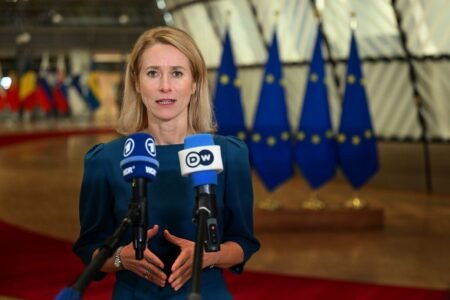On 13 November 2017 ministers from 23 EU Member States signed a joint notification on the Permanent Structured Cooperation (PESCO) and handed it over to the High Representative and the Council.
Advertisement
Towards more security for the EU and its citizens
In light of a changing security environment, the EU Global Strategy for Foreign and Security Policy (EUGS) started a process of closer cooperation in security and defence. Member States agreed to step up the European Union’s work in this area and acknowledged that enhanced coordination, increased investment in defence and cooperation in developing defence capabilities are key requirements to achieve it.
This is the main aim of a Permanent Structured Cooperation on security and defence (PESCO), as outlined in the Treaty of the EU, Articles 42 (6) and 46, as well as Protocol 10. Through PESCO, Member States increase their effectiveness in addressing security challenges and advancing towards further integrating and strengthening defence cooperation within the EU framework.
” Within one year after we started to prepare it, we are about to launch with PESCO an inclusive framework to facilitate the joint investments and projects that we so much need to strengthen the ability of the European Union to be a credible security provider for its citizens and globally.
– Federica Mogherini
Deepening defence cooperation through binding commitments
PESCO is a Treaty-based framework and process to deepen defence cooperation amongst EU Member States who are capable and willing to do so. The aim is to jointly develop defence capabilities and make them available for EU military operations. This will thus enhance the EU’s capacity as an international security partner, also contributing to protection of Europeans and maximise the effectiveness of defence spending.
The difference between PESCO and other forms of cooperation is the binding nature of the commitments undertaken by participating Member States. However, participation remains voluntary and decision-making will remain in the hands of participating Member States.
Structure and Governance
PESCO will have a two-layer structure:
- Council Level: Responsible for the overall policy direction and assessment mechanism to determine if Member States are fulfilling their commitments.
Only PESCO members are voting, decisions are taken by unanimity (except decisions regarding the suspension of membership and entry of new members which are taken by qualified majority).
- Projects Level: PESCO’s effectiveness will be measured by the projects it will develop. Each project will be managed by those Member States that contribute to it.
Steps towards a PESCO
Under the guidance of the European Council, three major steps are foreseen to establish PESCO:
1. Step: Member States presented a list of common commitments in September 2017 in the main areas of Protocol 10 to the Treaty, notably defence investment, capability development and operational readiness.
2. Step: Participating Member States will send a ‘common notification’ to the Council and the High Representative, which includes the list of common commitments, indicating that they are willing and able to fulfil the requirements of a permanent structured cooperation in the field of defence.
3. Step: Following the notification, a Council decision establishing PESCO to be adopted by qualified majority before the end of 2017.
PESCO an instrument relevant for the security of the EU and its citizens
- PESCO is both a permanent framework for closer cooperation and a structured process to gradually deepen defence cooperation within the Union framework. It will be a driver for integration in the field of defence.
- Each participating Member State provides a plan for the national contributions and efforts they have agreed to make. These national implementation plans are subject to regular assessment. This is different from the voluntary approach that is currently the rule within the EU’s Common Security and Defence Policy.
- PESCO is designed to make European defence more efficient and to deliver more output by providing enhanced coordination and collaboration in the areas of investment, capability development and operational readiness. Enhanced cooperation in this domain will allow decreasing the number of different weapons’ systems in Europe, and therefore strengthen operational cooperation among Member States, increase interoperability and industrial competitiveness.
- PESCO will help reinforce the EU’s strategic autonomy to act alone when necessary and with partners whenever possible. Whilst PESCO is underpinned by the idea that sovereignty can be better exercised when working together, national sovereignty remains effectively untouched
- It is about providing an umbrella for such examples of regional defence integration as the Belgian-Dutch Navy or the European Air Transport Command.
- Military capacities developed within PESCO remain in the hands of Member States that can also make them available in other contexts such as NATO or the UN.
PESCO as part of a comprehensive defence package
PESCO is closely connected to the new Coordinated Annual Review on Defence (CARD) and the European Defence Fund (EDF), which is currently being developed under the European Defence Industrial Development Programme. They are complementary and mutually reinforcing tools contributing to the same political goal:
- CARD, to be run by the European Defence Agency, through systematically monitoring of national defence spending plans, will help identify opportunities for new collaborative initiatives.
- The EDF will provide financial incentives to foster defence cooperation from research to the development phase of capabilities including prototypes.
- PESCO will develop capability projects, identified notably through the CARD process in priority areas. Eligible projects could also benefit from financing under the EDF, which would foresee an additional 10% financing for the defence industrial development phase of projects developed within PESCO framework.
Source: European External Action Service (EEAS)






